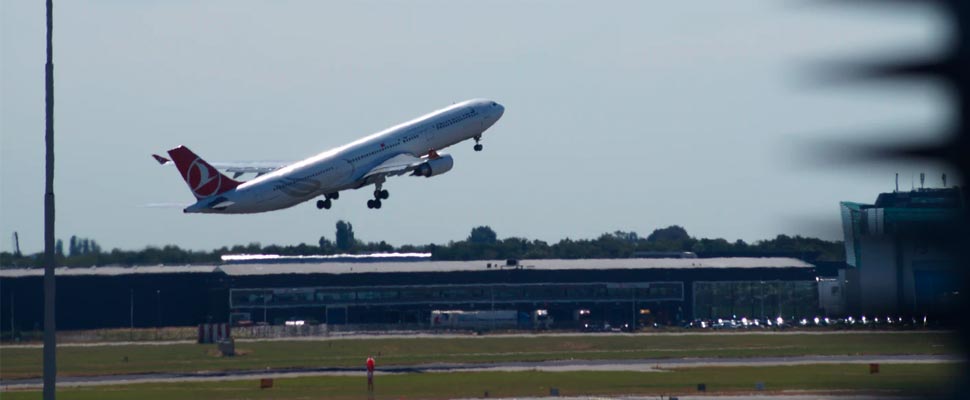Travel abroad in danger of extinction in Argentina
The wounds produced by the pandemic are a little more open due to certain tax measures taken by the Argentine government
The wounds produced by the pandemic are a little more open due to certain tax measures taken by the Argentine government .

Tourism in Argentina is going through a crisis after recent economic and coronavirus measures. / Photo: Unsplash
LatinAmerican Post | Thomas Handley
Listen to this article
Leer en español: Viajes al exterior en peligro de extinción en Argentina
Beyond the sanitary restrictions for entry to a large part of the countries, Argentina is also experiencing another strong obstacle for foreign tourism. In a hypothetical case in which the coronavirus was not an impediment to entering territories outside the country, the most recent economic measures in the country are detractors of said activity. Let's see in detail what reasons there are for tourist activity abroad to be considered an endangered species for Argentines.
Tax measures
In addition to the increasing price of the official dollar, which is around $ 77.95 in physical banks, we must add, first of all, the 7% DNT taxes on air tickets, and 5% for cash payments. Both have been in force since previous administrations and have remained present over time.
In turn, the so-called PAIS tax of 30% must be added. This tax is in force since December 23, 2019. Also applied to the purchase of foreign currency, this tax appears, among other things, in all payments to travel agencies, whether by land, sea or air when the amount is in foreign currency and paid in pesos.
As an addition, the recent 35% tax should be taken into account . This also applies to all spending in dollars or the purchase of foreign currency.
As a last measure, it has been arranged that the purchase quota of dollars for savings (currently at US $ 200) is affected by all purchases made in that currency. This includes services such as Netflix or Spotify, as well as expenses on tickets, hotels, and other goods and services outside the country. This, although it is not a measure that makes the passage or stay in itself more expensive, acts as a discouraging method for those planning a trip abroad.
Repercussion
The ability to sell by travel agencies, airlines, and other entities related to foreign tourism has been put in check not only by the sanitary measures of each country. It is public knowledge that many foreign companies linked to this area have decided to indefinitely interrupt their operations in Argentine territory, due to the economic inconvenience caused by not being able to offer their services.
In turn, in different localities of the country, the agencies have shown their dissatisfaction with the government's decisions, and have already carried out marches in protest against them. According to the newspaper La Voz, in a demonstration in Córdoba it was reported that "an international ticket issued in cash in pesos has a tax surcharge of 77 percent." A number that negatively affects the sector and, consequently, those who make a living from it. The report made by Infobae showed that "more than 26,000 families live exclusively from the travel and tourism agency sector."
Read also: The Billie Eillish documentary and other news of the week
The International Air Transport Association (IATA) has also spoken out regarding these tax measures. On the one hand, it has asked the Argentine government to reconsider these measures for the good of the sector. At the same time, it has remarked that they contradict the provisions of the policies accepted by the International Civil Aviation Organization (ICAO).
“Más de 26.000 familias viven exclusivamente del sector de agencias de viajes y turismo” según el informe de Infobae
While we are still under the scourge of Covid-19, for which a vaccine has not been presented, there is already a future concern for Argentines who want to travel abroad. This activity has changed in consideration with the passage of time. From being a luxury for a few, to being a treat for those who have saved for years, to now becoming an endangered species.





